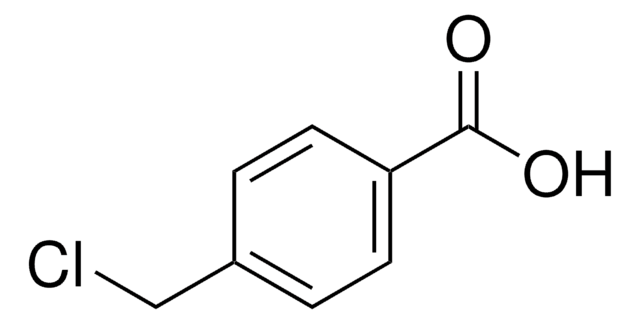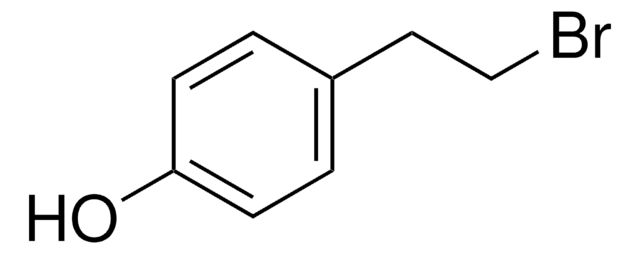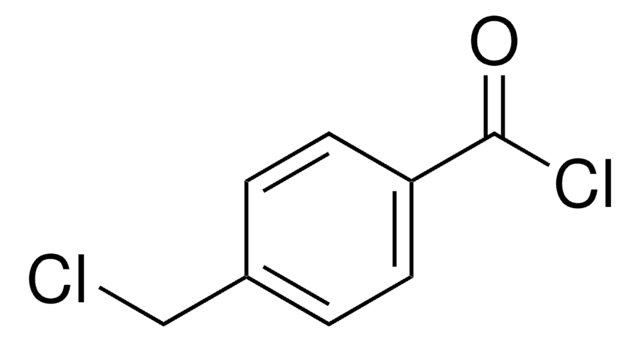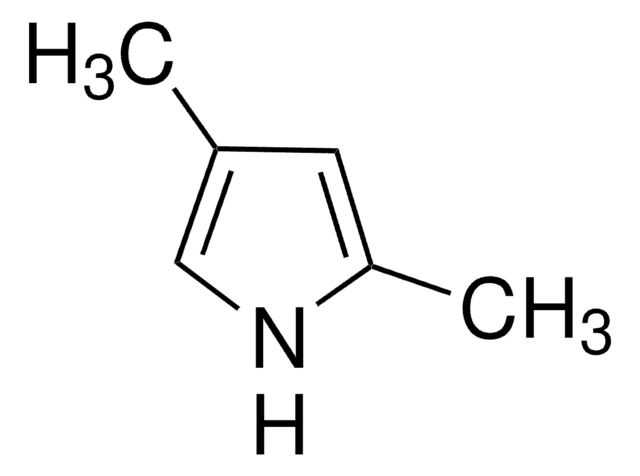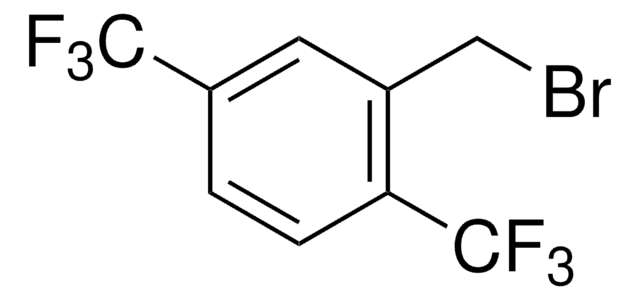Wichtige Dokumente
526126
4-(Chlormethyl)benzylalkohol
99%
Synonym(e):
1-(Chloromethyl)-4-(hydroxymethyl)benzene, 4-(Chloromethyl)benzenemethanol, 4-Chloromethylbenzyl alcohol, 4-Hydroxymethylbenzyl chloride, [4-(Chloromethyl)phenyl]methanol, p-(Chloromethyl)benzyl alcohol, p-(Hydroxymethyl)benzyl chloride
About This Item
Empfohlene Produkte
Qualitätsniveau
Assay
99%
mp (Schmelzpunkt)
58-60 °C (lit.)
Funktionelle Gruppe
chloro
hydroxyl
SMILES String
OCc1ccc(CCl)cc1
InChI
1S/C8H9ClO/c9-5-7-1-3-8(6-10)4-2-7/h1-4,10H,5-6H2
InChIKey
OGALXJIOJZXBBP-UHFFFAOYSA-N
Allgemeine Beschreibung
Anwendung
Signalwort
Danger
H-Sätze
Gefahreneinstufungen
Skin Corr. 1B
Lagerklassenschlüssel
8A - Combustible corrosive hazardous materials
WGK
WGK 3
Flammpunkt (°F)
Not applicable
Flammpunkt (°C)
Not applicable
Persönliche Schutzausrüstung
Eyeshields, Faceshields, Gloves, type P3 (EN 143) respirator cartridges
Hier finden Sie alle aktuellen Versionen:
Besitzen Sie dieses Produkt bereits?
In der Dokumentenbibliothek finden Sie die Dokumentation zu den Produkten, die Sie kürzlich erworben haben.
Kunden haben sich ebenfalls angesehen
Unser Team von Wissenschaftlern verfügt über Erfahrung in allen Forschungsbereichen einschließlich Life Science, Materialwissenschaften, chemischer Synthese, Chromatographie, Analytik und vielen mehr..
Setzen Sie sich mit dem technischen Dienst in Verbindung.